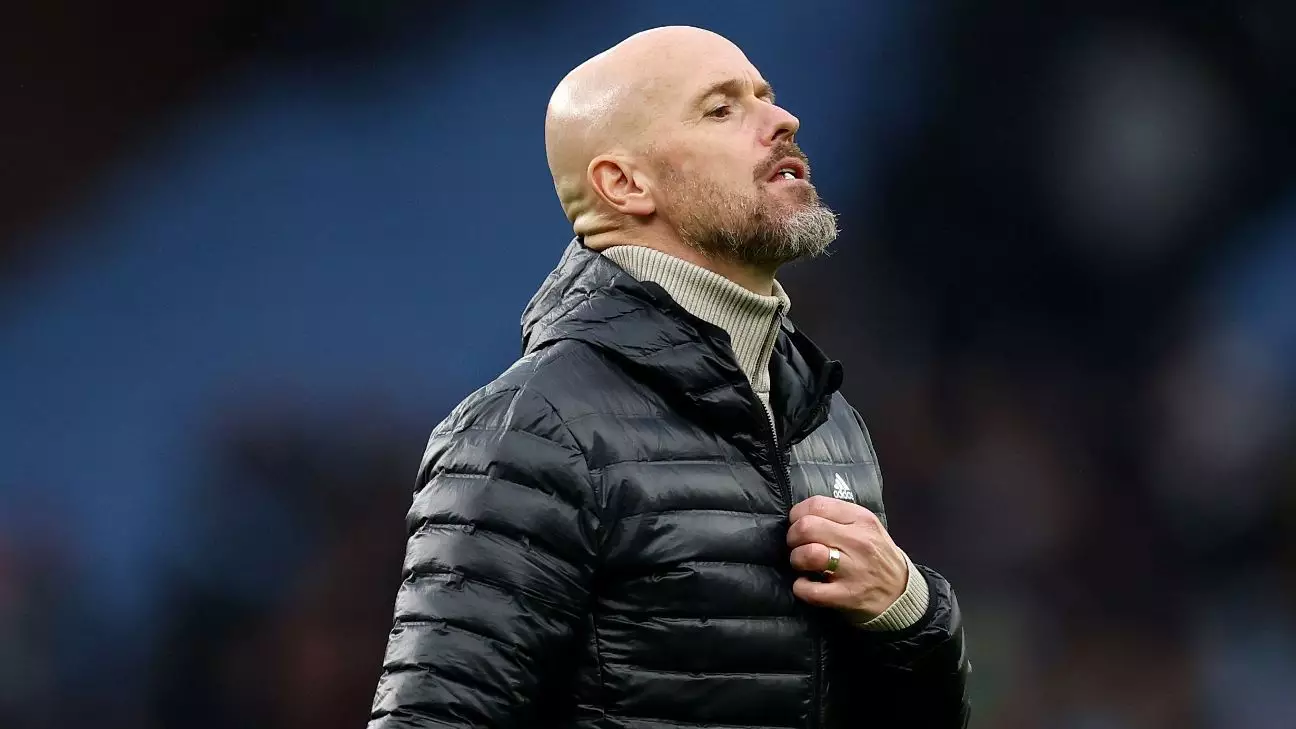Manchester United is currently facing a significant challenge in the Premier League, epitomized by their recent 0-0 stalemate against Aston Villa. This draw crystallizes the team’s difficulties, leaving them with the second-lowest goal tally in the league and marking a disheartening stretch of three consecutive matches without finding the net. Over the course of seven league games this season, United has mustered only five goals, representing their worst opening to a campaign since the 1989-90 season. Such a poor goal-scoring record not only burdens the team’s reputation but also raises serious questions about the tactical prowess and effectiveness of Erik ten Hag’s management.
Despite these offensive shortcomings, there is a silver lining in the form of their defensive capabilities. United has achieved four clean sheets this season, and their robust defensive organization has been a noteworthy aspect of their play. The team’s ability to maintain a solid backline—even in the absence of key players like Harry Maguire—suggests that Ten Hag’s efforts to instill discipline and cohesion within the squad are beginning to pay dividends. However, while defensive strength is a positive, it is essential for any team aiming for success to balance that solidity with an effective attacking strategy.
Ten Hag himself appears to be aware of this imbalance. In his post-match comments, he recognized the need for improvement in the attacking third, stating that the team must “step up” and become “more ruthless.” The contrast between their defensive resolve and offensive frailty might offer a glimmer of hope, but it is imperative for Ten Hag to find solutions to unleash the attacking potential within the squad.
In analyzing individual performances, Ten Hag highlighted certain players positively, particularly noting the contributions from Marcus Rashford and Alejandro Garnacho. Their efforts reflect the potential that exists within the squad, yet the inability to convert chances into goals remains a source of frustration. Ten Hag’s acknowledgment of Rasmus Højlund’s gradual return to fitness adds another layer of complexity; while understanding that a key player is regaining his form provides context, it does not excuse the collective failure to score. Expectations from fans and analysts alike rest heavily on the players’ shoulders, and it’s crucial that they begin to convert opportunities into tangible results on the pitch.
Furthermore, Ten Hag’s reliance on players like Antony to step up symbolizes a challenge some may perceive as lack of depth in the squad. The reliance on specific individuals rather than a consistent, collective team effort raises concerns about the setup and tactical decisions made by the manager.
The backdrop of uncertainty regarding Ten Hag’s position, especially with minority owner Sir Jim Ratcliffe witnessing the match, can only serve to add pressure. Questions swirl about the board’s backing and the implications of poor performances on Ten Hag’s job security. The coach maintains a stance of optimism, asserting that he believes in the long-term project he is leading. However, as results remain unsatisfactory, the challenge becomes about balancing patience with pressing the need for improvement.
Acknowledging the challenging nature of the club’s journey, Ten Hag emphasizes unity and commitment from both players and management. Yet, the harsh reality is that football, particularly at a club like Manchester United, is driven by results. The mandate for success is absolute, and if the team continues to struggle, the initial belief may quickly be overshadowed by frustration and doubt.
While Ten Hag expresses confidence in his squad and their potential to turn things around, the urgency of the situation cannot be overstated. A more cohesive attacking strategy is essential. The team must learn to convert the chances they create and become a more menacing force in the final third. As fans and stakeholders watch intently, the pressure is mounting—United must not only bolster their defensive record but also breathe life back into their goal-scoring capabilities. Without immediate improvements, the long-term ambitions of Erik ten Hag and Manchester United may remain just that—ambitions, rather than achievements.
